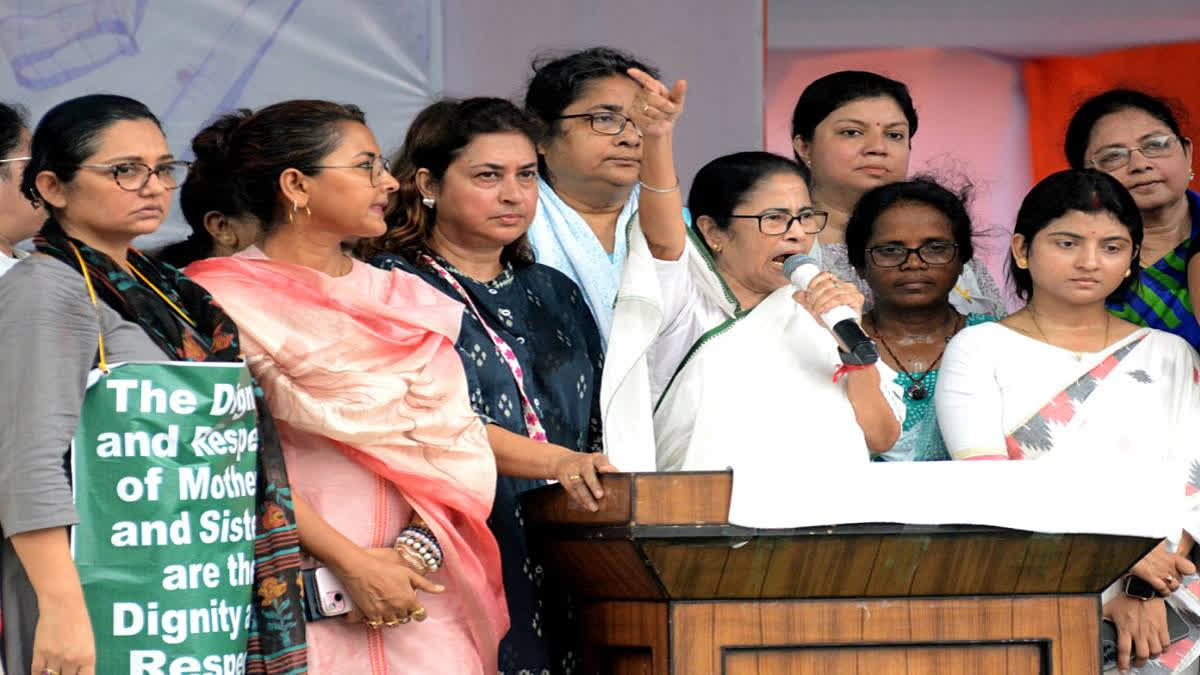The Eastern Metropolitan Bypass in Kolkata runs along the eastern flank of the metropolis and connects the southern part of the city with its eastern cousin. Along with some imposing structures along the arterial road, the Yuva Bharati Krirangan (Salt Lake stadium) is hard to miss. The massive facility can accommodate well above a lakh spectators and has played host to some of the biggest sporting and cultural events of the city.
On August 18 the stadium was ready to host the century-old Kolkata Derby as part of the historic Durand Cup, Asia’s oldest football tournament, where arch-rivals Mohun Bagan and East Bengal were supposed to lock horns. The teams were ready, the players were ready, organisers were ready, but the administration was not.
Literally shaken from their experience of the night of August 14 when a violent mob outnumbered the police and went on a rampage inside the RG Kar Medical College and Hospital, where a 31-year-old female medical post-graduate student was raped and murdered inside her own Pulmonology department, the Mamata Banerjee-administration knew that a huge congregation like this derby would be a perfect stage to collectively seek 'justice' for the victim, it did what it does best – stifle. The administration told the organisers that security can't be provided for the match. The result was the cancellation of the derby.
The Bengal administration thought it had won round one. But, could hardly realise that it had already scored a same-sided goal. The very Sunday, which the Mamata Banerjee-government did not want to see, turned on it with thousands of supporters of the two clubs protesting outside the stadium. The August afternoon asked, "If the government can deploy such a huge police contingent to stop our protest, what prompted them to cancel the derby on the pretext of not being able to provide security inside the stadium? Whom are they trying to fool?” In a never before show of unity, supporters of the two-century-old football clubs joined hands and stood shoulder to shoulder under blinding rain while joined by the supporters of another football major Mohammedan Sporting Club, demanding justice for the RG Kar medico.
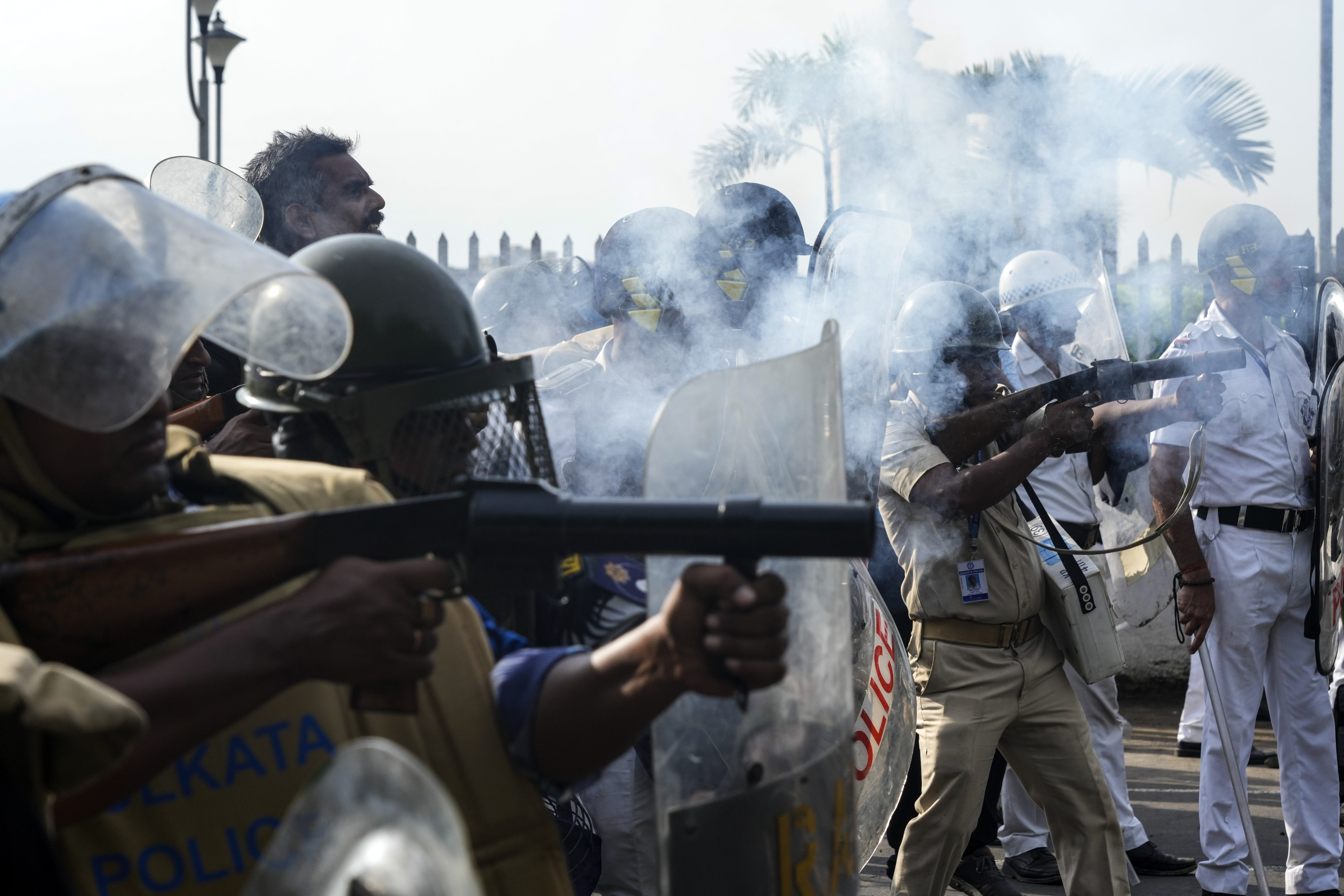
Did Mamata Banerjee start losing the plot that afternoon? Because what her administration did not understand is, the basic premise of a protest of this sort is to instill uneasiness among the political dispensation. But, if that political fear precipitates within the rank and file of the police and administration, then some serious questions are bound to rise.
And questions did rise. They were loud enough on the intervening night of August 14-15, when thousands across Bengal poured on to the streets seeking 'justice' for the raped and murdered medico. Huge gatherings are not new to Kolkata. In fact, it has earned a dubious distinction for it. But, when a mass mobilisation happens, that too predominantly of women responding to the 'Reclaim the Night' campaign, then anger on the streets becomes live and present. And it has not stopped since. Via the protests outside the stadium, questions have only become sharper as it ringed through college and university campuses, courts, IT hubs, medical institutions or performing arts spaces and now in schools.
This is where Mamata Banerjee failed. She simply could not gauge the gravity of the situation. Since August 9 when the heinous crime came to light, there have been several steps where the Bengal government repeatedly faltered, fueling speculations that the administration was desperate to cover-up. Negligence, lack of transparency, insensitive handling of public outrage, an abrupt renovation work adjacent to the crime scene, parents kept waiting for a glimpse of their daughter’s body, the mad rush to cremate the body, failure of the police in preventing vandalism inside the hospital on the night of August 14, blaming the media and social media users and police action against those who were critical on social media against mishandling of the investigation - the list simply gets longer.
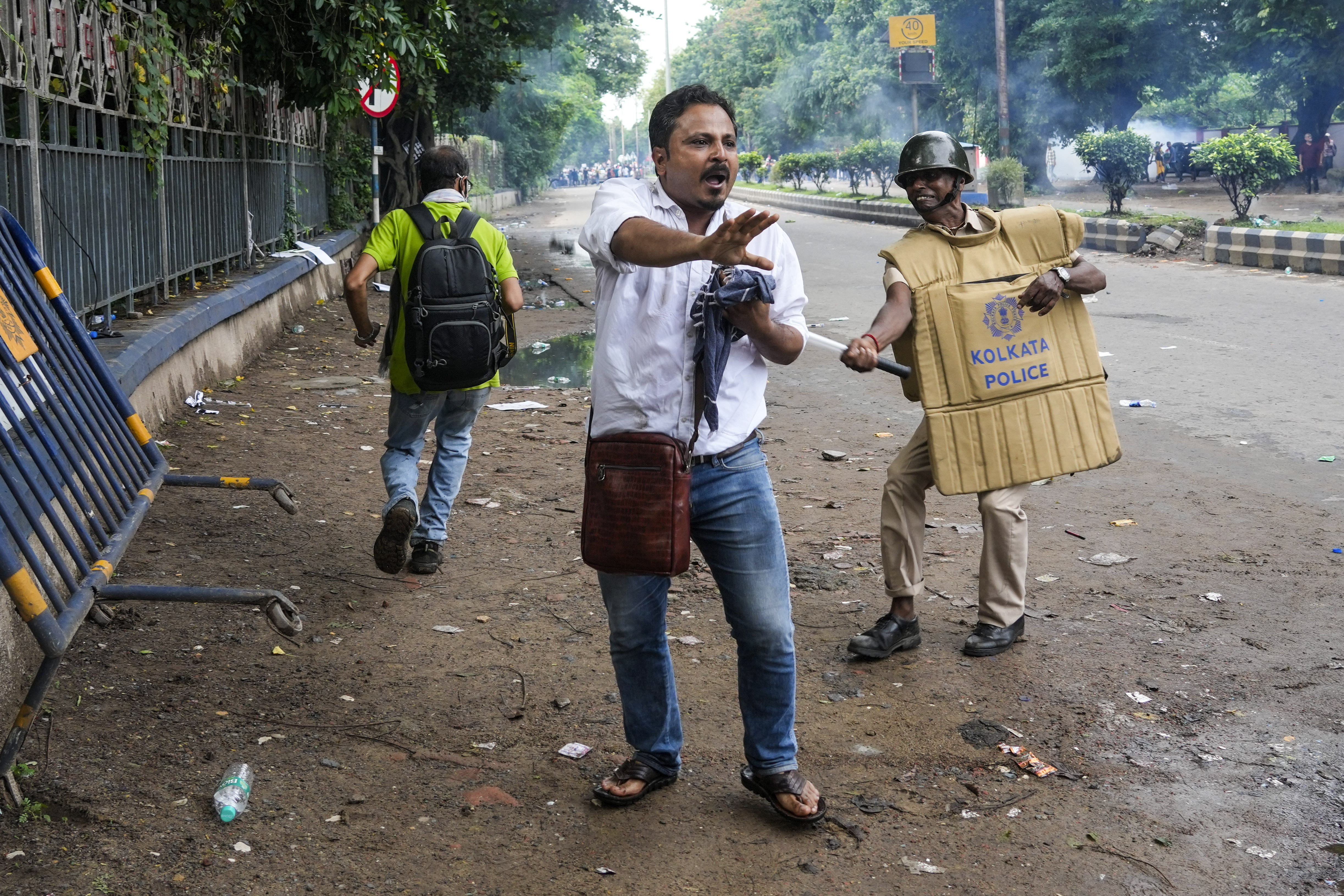
Adding fuel to fire was the curious case of Dr Sandip Ghosh, the beleaguered principal of RG Kar Medical College. Ghosh, who was accused of trying to pass the rape and murder case as suicide, resigned in face of a massive outrage against him, only to be re-appointed as principal of the Calcutta National Medical College and Hospital (CNMCH) within hours.
Fresh protests and the CNMCH students refusing him entry, forced the government to cancel his new appointment. Such was the power of this orthopaedics professor in the corridors of Mamata’s government that even after complaints of financial irregularities, no one could touch him. In June last year, Ghosh was transferred to Murshidabad Medical College after allegations of corruption. But, he was back within a fortnight. A month later the deputy superintendent of RG Kar Medical College wrote to the state vigilance commission accusing Ghosh of illegal sale of biomedical waste and misuse of the COVID-19 funds. An inquiry was initiated, but mysteriously the findings never saw the light of day.
This very 'syndicate raj' within the Mamata-government has now blown off. Through continuous protests from all walks of life, probably for the first time since 2011 the Bengali middle-class is out on the streets against Mamata Banerjee.
Bengal’s Chief Minister has publicly said, she wants capital punishment for those behind the rape and murder. Her nephew and Trinamool’s number 2, Abhishek Banerjee has gone a step further. Taking a leaf out of what in social media realms is popularly known as the Hyderabad model based on the 2019 police encounter and killing of four individuals accused of rape and murder of a woman, Abhishek has advocated similar formula for the RG Kar Medical College perpetrator.
Now, this quick-fix solution is somewhat understandable if it came from an agitated and disturbed mass. But, when such things are said by a Chief Minister of a state or a responsible political leader, it raises concern about their assessment of the Constitution and the judiciary. In reality, both Mamata and her nephew were so desperate to deflect public anger against them that they did not shy away from voicing this mistrust. The only problem this time was, no one is buying.
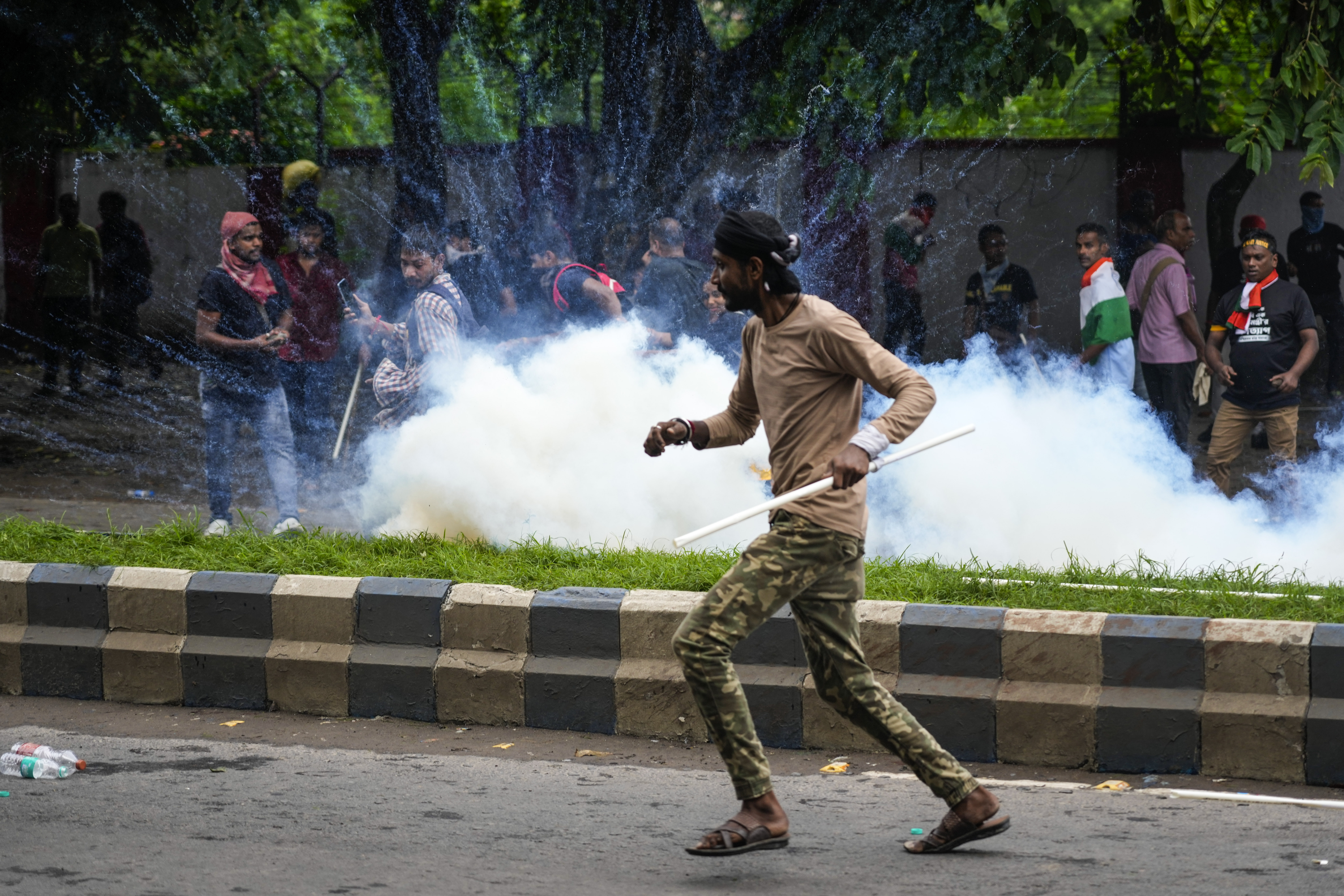
People think whatever Mamata Banerjee is doing with the RG Kar rape and murder case is basically abdicating of responsibility or the state is. It became more evident when thousands, again mostly women, denounced the state government's knee-jerk reaction with a programme called 'Rattirer Sathi – Helpers of the Night'. When the administrative order to organisations operating in West Bengal stated that safe zones need to be identified and created for women or night duty may be avoided for women, people castigated the government for its insensitivity and misogynistic approach to the situation.
At this point, a question keeps knocking.
If 'syndicate raj' and deep-rooted nepotism has plagued Mamata Banerjee's government to such an extent that all it needed was a rape and murder case to prompt people to take to the streets protesting, then why does Trinamool Congress keep winning election after election in Bengal.
The answer to this seemingly baffling question is, absence of any credible alternative. This sole factor keeps driving Mamata back to power and ensures a smart number of legislators in the Parliament. Both the Left and the Congress have steadily bled since 2011 when Mamata unseated the 34-year-old Left Front from the hustings. The BJP has been no match for her either. And Mamata has successfully mixed two things and presented them to Bengal – one, she is the only person standing between the BJP and 'sonar Bangla' and second, her populist measures in the form of Laxmir Bhandar, a cash dole for women and similar such schemes, which cut across social strata and gender. The beneficiaries never turned back and questioned. Till now.
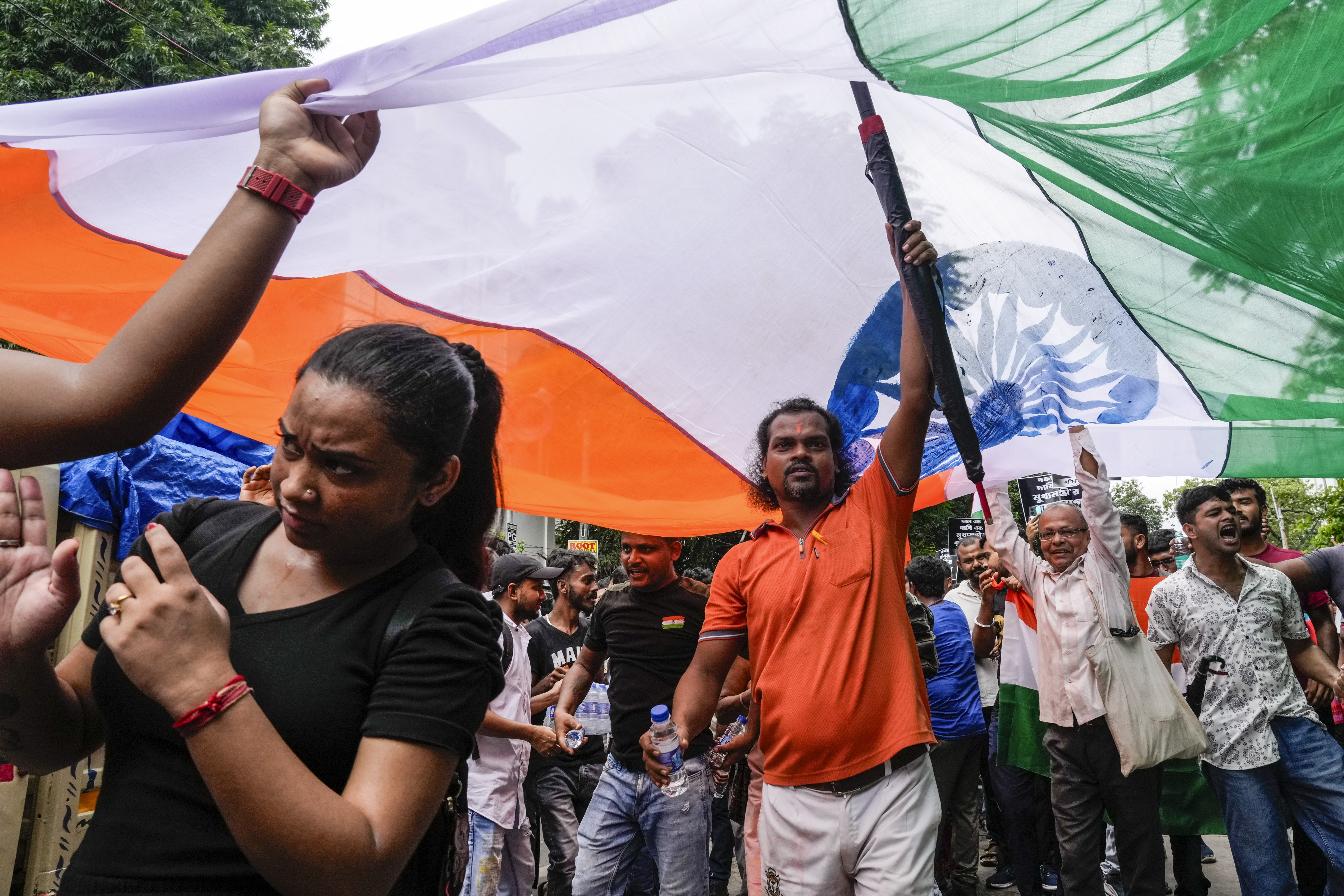
Mamata should keenly watch what happened in her neighbourhood earlier this month. Bangladesh has witnessed the violent overthrow of a seemingly liberal Sheikh Hasina, who offered political and relative economic stability to that country and was considered as the one standing guard against the ultra Jamaat-e-Islami. All of that didn't buy her eternal immunity from a disturbed polity.
When celebrated modern-day poet from Bangladesh Imtiaz Mahmud writes, Ful dekhe bhoy barche, rokto dekhe sahosh (The sight of flowers increases fear, Courage brims at the sight of blood), it resonates on the streets of that country with the youth. For the first time in decades, Mamata Banerjee has failed to read the Bengali mood and disgust on the streets. She has seen the invincible Left Front with a mammoth tally of 235 seats in the 275-member Assembly against Trinamool’s 30-odd seats in 2006, crumble in five years. She should know better that numbers and noise don’t count anymore.
Taking a leaf out of American sociologist Edgar Z. Friedenberg’s works where he says, "Juvenile delinquency serves many purposes, including that of providing sadistic adults with fantasies suited to their special tastes", this time Mamata Banerjee should think twice before underestimating the youth on the streets of Bengal. Or else, the Monsoon rains of 2024 could be a prelude to her Armageddon moment.
